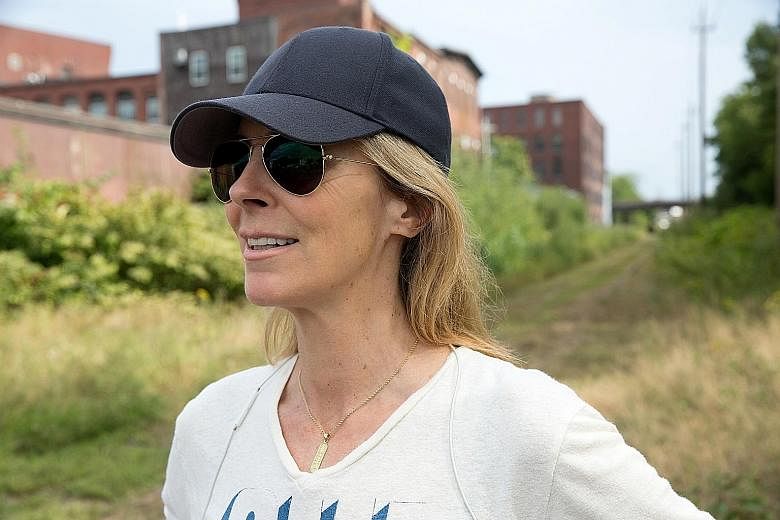NEW YORK • Oscar-winning director Kathryn Bigelow immediately turns her cellphone off before sitting down in the busy breakfast room of a Tribeca hotel. "Otherwise, I'll be getting alerts every five minutes," she says softly, "probably with another acquittal".
She is referring to the acquittals of white police officers tried for shooting and killing unarmed African- American citizens, proceedings of criminal justice that form the inescapable context for her new movie, Detroit.
Set amid the civil unrest that seized that city 50 years ago this week, the film does not just reflect present-day grievances having to do with racism, police brutality and a fractured social contract - it is borne of them.
In 2015, Bigelow's frequent collaborator, screenwriter Mark Boal, came to her with the story of Algiers Motel, where during the riots, white police officers responded to the sound of gunfire and wound up terrorising a group of black men and two white women.
Three of the teenage boys were shot and killed, with evidence and testimony strongly suggesting that they were murdered, rather than killed in self- defence, as the police claimed. The officers, along with an African-American security guard who had accompanied them to the scene, were found not guilty of criminal and civil rights violations.
As Boal recounted the story, Bigelow recalls "it was pretty much concurrent" with the acquittal of the Ferguson, Missouri, policeman who shot and killed Michael Brown. "Which I found unnerving. I said, 'Wait a minute, it's been 50 years. And this is recurring again and again. This has to stop.'"
Bigelow and Boal then embarked on the process they have perfected since making the Iraq drama The Hurt Locker, which won six Oscars in 2010, including Best Picture; and 2012's Zero Dark Thirty, about the hunt for Osama bin Laden.
Boal, a former journalist, re-reported the events of the 1967 riots, which have been extensively documented in oral histories, journalistic accounts and John Hersey's book The Algiers Motel Incident.
In the meantime, Bigelow amassed photographs from the time, covering her office wall with more than 1,000 images to form a visual map of the story she wanted to tell: the "macro" story, about the fires, lootings, chaos and indiscriminate killings that engulfed Detroit for five summer days; and the "micro" story, about the particular brand of cruelty that played out over a few hours at the Algiers, and that provides a crucial context for the rage coming to a boil outside.
To give both those stories emotional immediacy, she drilled down into brief moments, many of them gleaned from documentary footage and Boal's reporting.
For example, when the film- makers interviewed the black security guard, Mr Melvin Dismukes, he recounted bringing a pot of coffee as a goodwill gesture to the police officers and National Guardsmen watching over a life insurance company that was just a block away from the Algiers.
When they heard a gunshot from the motel, they thought they were under sniper fire (it turned out to be a recklessly discharged starter pistol).
Ms Julie Hysell, one of the women at the Algiers, recalled desperately grasping the hand of her friend, Ms Karen Malloy, while they lined up against the motel's wall, unsure whether they would survive the ordeal.
The coffee and the clasping of hands - each a wordlessly revealing gesture - are dramatised in Detroit because, as Bigelow says, "those details are exquisite".
In many ways, Detroit combines the hyper-subjective urgency of The Hurt Locker and the tick-tock procedural of Zero Dark Thirty, becoming what Bigelow calls "this unwieldy spiral" of rigorous realism and an almost abstract approach to a kaleidoscopic structure that audaciously flouts the usual rules of linear, character-driven narrative.
"The content dictates the form," she says. "For this piece to humanise the experience, it had to be as immersive and as experiential as I could possibly make it."
But more than create an emotional experience for the viewer, Bigelow insists: "I'm trying to inform, so that you can walk away with an informed opinion. I don't think it's up to the film-maker to judge.
"It's hard sometimes to leave my own sentiments out of it. But I think it's important that the work be informational."
WASHINGTON POST

